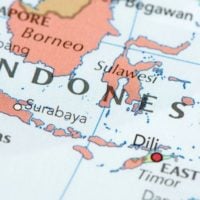Deadline: 31-Aug-23
The Nordic Forest Research (SNS) and the Forest Bioeconomy Network (ForBioeconomy) have announced a joint research network call to promote collaboration and strengthen forest research related to bioeconomy in the Nordic region by networking activities.
Aims
The aim of the network call is to:
- Strengthen forest research in the Nordic region.
- Bridge gaps between research and practice.
- Promote collaboration across sectors within a sustainable bioeconomy.
- Link national research projects which otherwise would be carried out on a national level, but where considerable positive outcomes can be reached through a wider regional scope.
Focus Areas
- These are the focus areas of the call:
- Youth’s perspective on mitigating climate change in Nordic forests
- Climate change has increased the risk of forest damage in the Nordic region, caused by, among other, drought, fire, floods, pests and pathogens. They want to influence the Nordic forest sector by funding networks that explore youth’s perspectives and inspire knowledge building among Nordic youth regarding the role of forests and forestry to mitigate climate change and climate change related damages.
- A gender equal Nordic forest sector
- Forestry is historically a male dominated sector. They want to promote gender equality and highlight the importance of equal rights and opportunities by funding networks that directly address gender equality issues with the aim of creating a modern and diverse Nordic forest sector.
- They also invite networks that relate to the general focus areas of the SNS strategy:
- Forest resources as a base for value creation and rural development
- Climate change adaptation and mitigation
- Safeguarding of forest biodiversity
- Youth’s perspective on mitigating climate change in Nordic forests
- Well qualified applications related to focus area I and II, specific for this call, will have highest priority in the evaluation and selection process.
Funding Information
- Successful applicants may receive funds of maximum 200,000 SEK for activities over the course of one year (2024), covering at most 50% of the total budget for the network.
Network Outcome
- Network outputs should be useful for the Nordic community and should include knowledge exchange across national borders through e.g. arranging workshops, seminars, scientific meetings or open conferences –IRL, digital, or hybrid.
- Networks could also produce peer-reviewed scientific papers, communicate research results, design policy recommendations based on research findings, write large-scale research funding applications, and create or maintain databases or websites.
Activities and Participation
- Network grants are for activities over the course of one year (2024).
- Aspects of the prioritized focus areas must be addressed.
- Researchers or communication officers at research institutions are eligible to apply.
- Stakeholders are encouraged to be involved but cannot be main applicants.
- The main applicant must be a researcher or a communication officer at a Nordic research institution.
- Submissions with women as main applicant are particularly encouraged.
- Applicants in funded networks should represent at least five different countries consisting of at least three research institutions from different countries in the Nordic region. Applicants of relevance for the activities of the network from outside of the Nordic region can also be included.
- Each gender must be represented by a minimum of 40% of the applicants and the participants in the network.
- PhD students and early career researchers should be included in the network.
Requirements
- Applicants in funded networks should represent at least five different countries, consisting of at least three research institutions from different countries in the Nordic region.
- Applicants of relevance for the activities of the network from outside of the Nordic region can also be included. The main applicant must though be a researcher or a communication officer at a Nordic research institution.
- Note: The Nordic region is defined as Denmark, Finland, Iceland, Norway, Sweden and the autonomous areas of the Faroe Islands, Greenland and Åland Islands.
For more information, visit Nordic Forest Research (SNS).









































